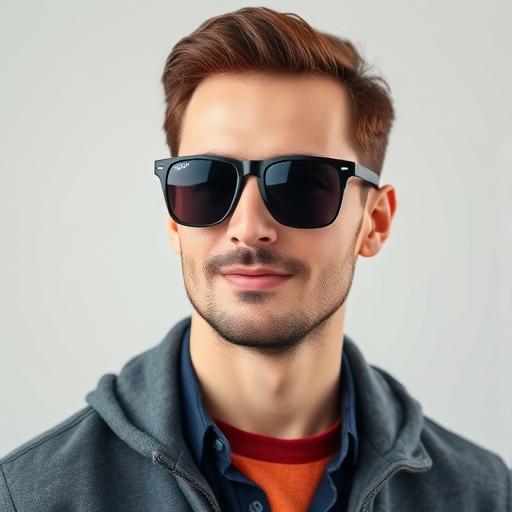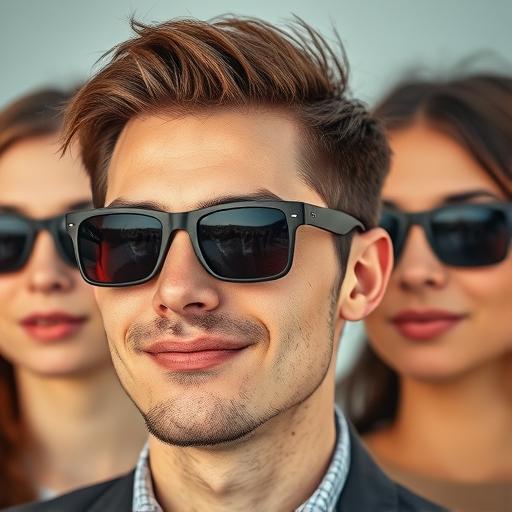Why Do Blind People Wear Sunglasses

Blind individuals wear sunglasses for a variety of reasons that extend beyond vision. One primary purpose is to protect their eyes from harsh environmental elements, even if they no longer perceive light or images. Sunglasses act as a critical defense mechanism against potential eye damage.
Protection from Sunlight and UV Rays
Despite not seeing, the eyes of blind individuals remain vulnerable to ultraviolet (UV) radiation. Prolonged exposure to UV rays can lead to conditions such as cataracts, photokeratitis (a sunburn of the cornea), and long-term tissue damage. Sunglasses with UV protection help shield the eyes from these risks, preserving ocular health over time.

Reduction of Glare and Discomfort
Bright light can cause discomfort or even pain for some visually impaired individuals, especially those with residual vision. Glare from sunlight, car headlights, or reflective surfaces can overwhelm their remaining sight or sensitive retinas. Darkened lenses reduce this glare, making outdoor navigation and social interactions more comfortable.
Social and Psychological Benefits
Features table for Social and Psychological Benefits
Sunglasses offer a subtle yet effective way to navigate social settings with confidence. They can help blind individuals avoid stares or intrusive questions by signaling to others that they may not be able to see. Additionally, many embrace sunglasses as a personal style choice, blending functionality with self-expression.

Protection for Sensitive Eyes
Certain blind individuals experience photophobia, a condition that causes extreme sensitivity to light. This might result from medical conditions like albinism, uveitis, or neurological disorders. Sunglasses provide essential relief by filtering out bright light, easing symptoms such as eye strain or headaches.
Identification as Visually Impaired
Wearing sunglasses can serve as a visual cue to others that a person is blind. This helps prevent misunderstandings, such as someone inadvertently leaving space for the individual to take initiative in directions. It’s a practical tool for fostering respect and awareness in daily interactions.

Common Misconceptions About Blind People Wearing Sunglasses
The practice of blind people wearing sunglasses is often misunderstood. Let’s address some myths to gain a clearer perspective:
- Myth: “If they can’t see, why do they need sunglasses?”
These misconceptions overlook the complex reasons behind the choice. While fashion may play a role for some, the primary motivations are health and practicality. Moreover, not all blind individuals wear sunglasses—preferences vary based on individual needs and lifestyles.
Conclusion
Blind people wear sunglasses for reasons that include protecting their eyes from UV damage, reducing glare, managing light sensitivity, and navigating social environments more comfortably. These glasses are not a symbol of vision but a tool for health and practicality. By understanding these uses, we can foster greater empathy and avoid assumptions. Next time you see someone wearing sunglasses, consider the diverse purposes they might serve beyond mere fashion.
FAQ – Why Do Blind People Wear Sunglasses?
Q1: Can blind people still be affected by sunlight?
Yes, UV radiation can harm the eyes even if a person cannot see. Sunglasses with UV protection help prevent corneal damage and other long-term issues.
Q2: Do all blind individuals wear sunglasses?
No, it depends on personal preference, the cause of their vision loss, and whether they experience light sensitivity. Some opt for wide-brimmed hats or simply live without them.
Q3: Are there different types of sunglasses for blind people?
Many choose polarized or tinted lenses to manage glare effectively. Others may prefer lightweight frames or darker tints for added comfort in bright environments.
Q4: Is wearing sunglasses a sign of blindness?
Not necessarily. While some blind individuals wear them for protection, others may do so for fashion, medical reasons, or to shield their eyes from wind and debris.
Q5: Can blind people tell if their sunglasses are on correctly?
Some rely on tactile cues to adjust their glasses, while others may notice the change in light levels or ask for help. Adaptation varies depending on the individual’s experience and tools they use for orientation.
